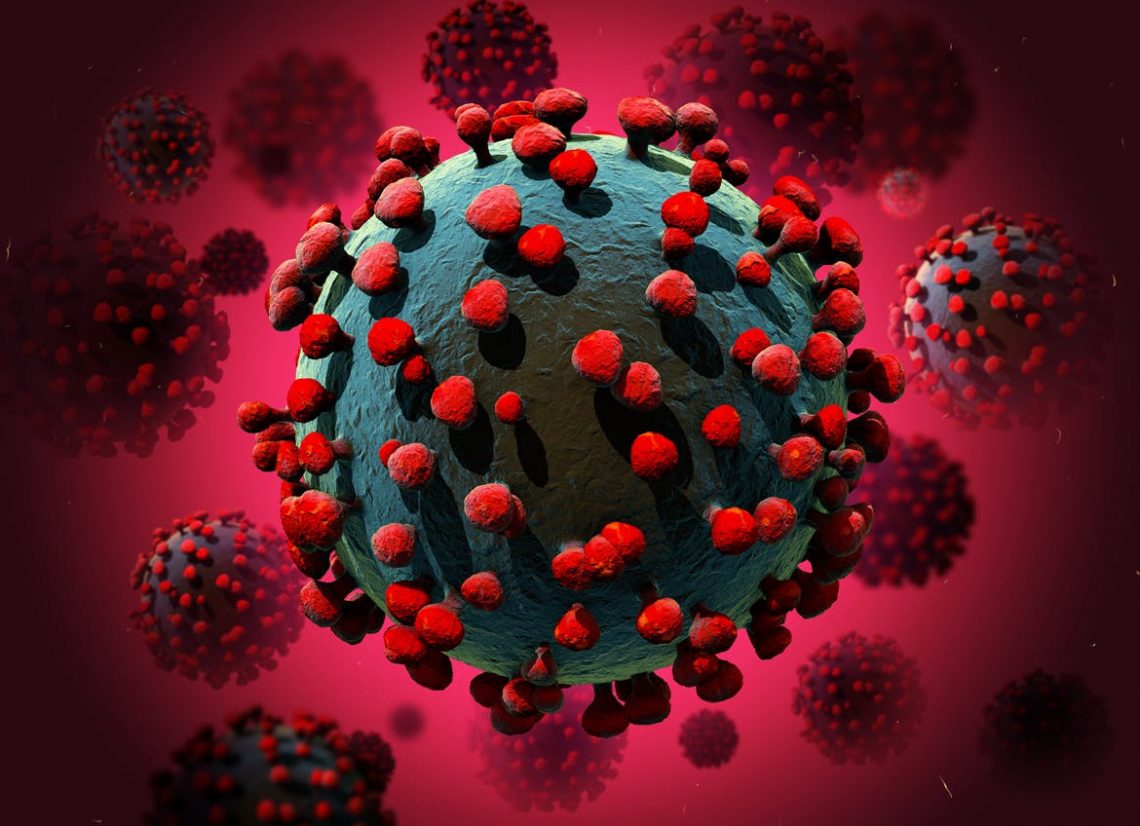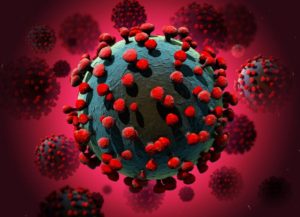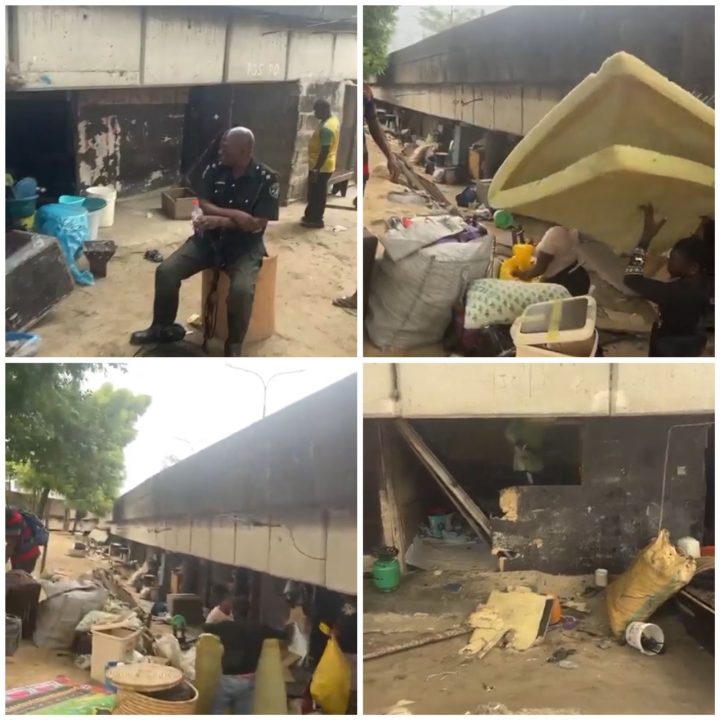The Nigerian Economic Summit Group, the Lagos Chamber of Commerce and Industry as well as the Abuja Chamber of Commerce and Industry, have expressed fear that another lockdown would negatively affect the economy.
The groups said this as the Presidential Steering Committee on COVID-19 on Monday said it would take tough actions to contain the spread of the deadly virus.
The committee also disclosed that the country had entered the third wave of COVID-19.
Recall that in 2020, Nigeria imposed lockdown twice to stem the rising cases of the virus. The lockdown was, however, lifted when the infection went down towards the end of the year.
But the country has witnessed a rapid increase in cases since the beginning of last month.
On Thursday, it was reported that no fewer than 1,276 new COVID-19 cases were recorded in Nigeria between May 27 and June 27.
But between June 27 and July 27; 4,261 cases were recorded, representing an increase of 2,985 (233.93%) over 1,276 cases recorded between May 27 and June 27.
The Chief Executive Officer of the NESG, Laoye Jaiyeola, said the country could not afford another lockdown.
According to him, Nigerians need to understand that they are on their own because COVID-19 vaccines are scarce.
He stated, “The country cannot afford another lockdown. It will shrink government revenues, affect the private sector and the common citizen. The Delta variant is dangerous and has led to so many deaths. We need to be serious with wearing masks and complying with social distancing guidelines.
“The government needs to be proactive with setting up our manufacturing capacity for the vaccines. We should be able to pull resources together to produce our own and distribute them effectively.”
On her part, the LCCI Director General, Dr Chinyere Almona, said any lockdown would inhibit the growth projections for the country.
She stated, “With the level of worsening insecurity, scarce foreign exchange, and falling foreign direct investment inflows, a third wave of COVID-19 pandemic that may lead to any form of lockdown will be inhibitive to the growth projections for Nigeria.
“With the 0.51 per cent growth recorded in the first quarter, we need to achieve a real GDP (gross domestic product) growth rate of at least three per cent for the remaining part of 2021 to achieve the latest projected growth rate of 2.5 per cent year-on-year by the International Monetary Fund. Recall that the Nigerian economy exited recession in the fourth quarter of 2020 with a modest 0.11 per cent growth, followed by a marginal increase in growth rate to 0.51 per cent in the first quarter of 2021. Any further disruptions to the production output in our economy may result in dismal growth rates in the third and fourth quarters of 2021.”
She also noted that the vaccination rate was still low in the country and that vaccination programme was currently suspended due to the non-availability of vaccines.
The director general stated, “Nigeria cannot afford a third wave COVID-19 lockdown in 2021. The government’s plan to reduce poverty means that we need growth that supports job creation and fiscal policies to drive more revenue generation. A lockdown will simply disrupt these plans.”
Almona advised government to encourage local production of basic needs of Nigerians to reduce dependence on imported goods.
The Minister of Health, Dr Osagie Ehanire, said current data indicated that the country was experiencing the third wave of the virus.
He said, “Like many parts of Africa, Nigeria has begun to record a sharp increase in the number of confirmed COVID-19 cases since the month of July as global anxiety over the Delta variant spreads.
“All data indicate that we are now no doubt in the third wave of resurgence of the SARS-COV-2 infection which we saw coming long ago.”
The minister also revealed that only 17 states made data or sample submissions in the last cycle, where Lagos and Akwa Ibom states were the epicentres.
The minister also said all treatment centres had been put on the alert to receive cases in the face of the third wave.
The Director-General of Nigeria Centre for Disease Control, Dr Chike Ihekweazu, at the briefing disclosed that Akwa Ibom State accounted for 80 per cent of the 32 new Delta variant recorded in the country.
He said, “As of this morning, 32 confirmed cases of the Delta variant were in Nigeria from five states: Abuja, Oyo, Cross River, Lagos and Akwa Ibom.
“Some of these have been returning travellers, some of the local transmissions.
“Now, the biggest batch of sequencing that we got this morning was out of Akwa Ibom.
“So, out of 23 cases there, 19 were the Delta variant. And that’s why I said 80 per cent of the cases in Akwa Ibom today, are from sequencing turned out to be Delta.”
Mustapha, while responding to a question said the government might introduce strict measures to contain the spread of the new variant.
He said, “Nothing is off the table. Let me say very categorically, nothing is off the table when it comes to protecting the lives of the people of this country. We will not hesitate in taking measures that will be considered quite stringent.
“All the countries of the world are applying different measures, countries that were adjudged to have successfully dealt with COVID-19 suddenly realised that they had to impose certain measures to ensure that they continue to balance lives and livelihood. And like I said, nothing is off the table. We’ll continue to study the situation.”
Also, the Minister of Foreign Affairs, Geoffrey Onyeama, said diplomats that travelled through or visited Brazil, India, Turkey or South Africa within 14 days and had not taken a valid PCR test would be quarantined in government facilities.
The minister added that only ambassadors and deputy ambassadors and their spouses would be allowed to quarantine in their official residences.
He said, “We had some issues with diplomats at ports of entry, and it was really important, the Presidential Steering Committee decided that we had to come up with something that was clear that everybody, all the diplomats would understand and not have the difficult situation that we were having.
“So basically, there are two categories of countries, as you know, they’re four countries that are under a restricted protocol and non-restricted countries.
“Now regarding diplomats coming from the restricted countries, or that have visited or passed through those restricted countries, in the last 14 days, there’s a special protocol that we have in place now. So of course, everybody has to do a PCR test, you know, 72 hours before travelling.






